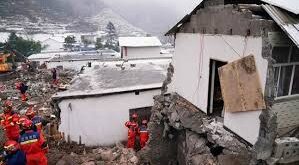Zimbabwe is sweating over the power crisis and is now seeking an emergency meeting with the Zambezi River Authority (ZRA) to discuss water allocations to improve power generation at Kariba South Hydroelectric Power Station.
ZRA, which is a joint venture outfit owned by the governments of Zimbabwe and Zambia, last year allocated 22.50 billion cubic metres of water to both ZESA and ZESCO, which share equally the water resources at the complex.
But, ZESA and ZESCO, which rely on Lake Kariba for the bulk of their hydroelectric power generation, have been battling low power generation, resulting in the two southern African countries experiencing crippling power cuts.
Energy and Power Development Minister, Zhemu Soda is now seeking an emergency meeting with ZRA.
“We are meeting ZRA with the hope that water allocation is going to be increased and improve our generation,” Soda said.
He said the power utility ZESA has increased power imports from regional power utilities.
“We are importing about 500 megawatts (MW),” Soda said.
The plan to engage ZRA comes after Zambia President Hakainde Hichilema and several of his ministers visited the Kariba North Bank Power Station to get first-hand information on the crisis.
President Emmerson Mnangagwa is equally disturbed.
In his inaugural Cabinet meeting for 2023 this week, President Emmerson Mnangagwa said there was a need to address economic enablers, in particular electricity.
His remarks come at a time ZESA is battling to bring on line two new generators at the country’s largest coal-fired power plant, Hwange Power Station.
Chinese contractor, Sinohydro Corporation was supposed to commission Unit 7 with a generation capacity of 300MW last year.
But, Sino Hydro failed.
On the one hand, Zimbabwe is experiencing unscheduled power cuts lasting for more than 12 hours daily, largely due to low generation capacity at Kariba South Hydroelectric Power Station.
The situation has been exacerbated by machine breakdown at its four power stations in Hwange, Bulawayo, Munyati and Harare, which are battling low generation capacity. The power crisis has forced companies to use backup diesel generators, which are expensive to run.
On the other hand, Zambia power utility ZESCO last week announced an end to load shedding following various measures including restoration and upgrading of power generation at various power stations across the country. BusinessTimes
 Nhau News Online News that is accurate, reliable, trustworthy!!
Nhau News Online News that is accurate, reliable, trustworthy!!
